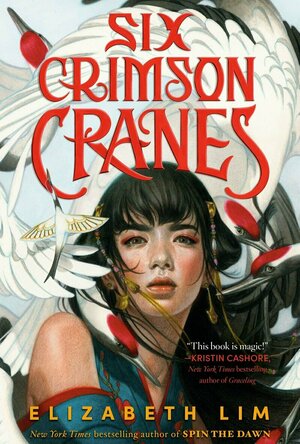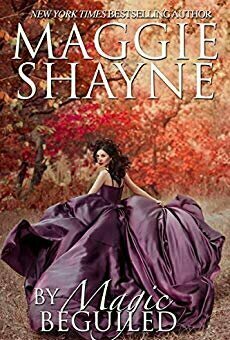
LearnEnglish Kids: Playtime
Education and Entertainment
App
Read and watch fun animated songs and stories to help your child develop in key areas in English:...
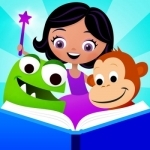
Speakaboos - The Reading and Learning App for Kids
Education and Book
App
The only reading app designed to motivate kids to read! ** Over 200 interactive stories & songs that...
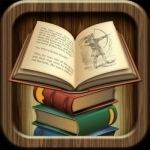
3D Classic Literature Collection
Book and Entertainment
App
• Featured by Apple in "Back to School" in the App Store (US/UK and many others...) • Featured...
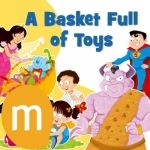
A Basket Full Of Toys - Reading Planet series, authored by Sheetal Sharma, is a genre of imaginative fiction whose vibrant and bubbly characters discover the essence of good behaviour in a fun way
Book and Education
App
‘Reading Planet’ series, authored by Sheetal Sharma, is a genre of imaginative fiction whose...
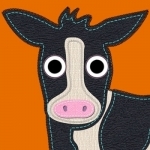
To the farm!
Book and Education
App
* Nominated for the prestigious Cybils Awards 2012 in the Books category * Best10APPS said: "The...
Lottie disney bookworm (1056 KP) rated Six Crimson Cranes in Books
Jun 17, 2021
Where do I start?
Wow!
In a kingdom which has banned magic and banished all demons to the Holy Mountains, Princess Shiori must hide her magical blood from those around her, in particular her six brothers, her mysterious stepmother and her father, the Emperor.
However, when a combination of magic and stubbornness derails Shiori’s betrothal ceremony the princess discovers that she is not the only family member hiding their gift. After spying on her stepmother, Shiori is convinced that her father’s wife is a demon and turns to her brothers…with disastrous consequences.
With her six brothers transformed into cranes, Shiori is alone, cast far away from the palace and forced to remain mute: for every word she utters, one brother will die! She is also unrecognisable, her magic is locked and she cannot reveal her past to anyone. Powerless, abandoned and mute- can Shiori save her six older brothers and return home to defeat her stepmother?
Shiori herself is an amazing protagonist. She is young, impulsive, stubborn but also has the biggest heart. Her love for her brothers (and food) is integral to her personality and the comfort she takes in the memories of her mother is beautiful.
Initially, Shiori’s life may appear to be a fairytale with extravagant robes and magnificent palaces. Maybe that is why Lim creates a fairytale-worthy curse? With a lost voice, a lost pink slipper and a city put to sleep, Elizabeth Lim certainly showcases some of the magic we saw in her Disney Twisted Tale novels.
Shiori’s journey to save her brothers is one of tremendous bravery and courage and it is along this path that the princess truly discovers her inner strength. She also matures immensely (it’s probably inevitable when your stepmother curses you) but Shiori experiences the hardships of the world around her, learns who to trust and realises that sometimes poison (or a curse) can be a “medicine in disguise”.
The supporting cast within Six Crimson Cranes are also incredible. Seryu the dragon prince with his ruby eyes and green hair clearly cares for Shiori. Will he try to sway her affections in book two? He will have to compete with Takkan, the loyal, picture-perfect prince who protected Shiori when no-one else did, long before he knew her true identity.
Shiori’s stepmother, Raikama, was possibly the most complex character. Despite only being present at the beginning and end of the novel, she spends 90% of the book as a villain – and the reader is fully on board with this! However, Lim’s ingenious use of Shiori’s faint memories help her piece together an unfathomable puzzle: why would Raikama curse the siblings instead of killing them? Is this linked to her stepmother’s magic and her mysterious past?
The world building in Six Crimson Cranes is magical. Without breaking the flow of the novel Lim perfectly creates the kingdom of Kiata in our minds, from the manicured grounds of the palace during the Summer Festival, with kites bobbing against azure skies, to the bleak but beautiful Iro, overlooked by Rabbit mountain, glittering in the light of the silver moon. Elizabeth Lim truly transports her readers to these beautiful but dangerous landscapes.
Six Crimson Cranes is a book which surpassed all my expectations. The world building is as magical as its fairy-tale undertones and the characters already feel like old friends. I don’t think I can wait another year for the sequel!
Thank you so so much to Netgalley for providing this amazing opportunity! I received a free digital copy of this book in exchange for an honest review…and now I’m off to pre-order the real thing!
Kara Skinner (332 KP) rated By Magic Beguiled in Books
Sep 10, 2019
Brigit Malone can paint anything she sees, and uses that skill to get herself and her best friend, Razor Face Malone, off the streets. Living the straight life is good until an old enemy kidnaps Raze and demands Brigit forge a privately owned painting, switch the fake for the original, and deliver it. But that painting is the prize possession of Adam Reid, a good man betrayed one too many times. Not only that, but Brigit has seen him before in her dreams. Hurting him is unbearable, but so is leaving Raze in danger.
Neither of them realize the images in the painting are actually a message from the twin sister Brigit doesn’t know she has, a message calling her back to the enchanted kingdom of Rush, where the two half fay twins are destined to put down the usurping Dark Prince Tristan and restore peace to their home, the distant land of Rush.
This book was just what I needed. It’s an epic adventure with romance, deception, and magic. Adam Reid is breath-takingly sexy, and Brigit is wonderfully strong and graceful, like a fairy should be.
However, Adam isn’t inclined to believe in love, let alone fairies. After his terrible childhood with an abusive father, his money was stolen by his ex wife, leaving him a jaded and cynical man about the world and very distrustful of humans. His sadness translates really well on the page and it’s really easy to feel for him, even when he’s complaining about only being able to afford a once-a-week cleaning service instead of a live-in maid. Despite his crankiness and need to be a cynic, you can’t help but want him to find true love and happiness.
Brigit is similarly disillusioned about life. After living homeless on the streets for several years, she succumbed to be an art forger to care for Raze, an old man who had saved her from a fire, and acted like a father to her. Now she was struggling to put the past behind her by running a florist shop. Unfortunately she will have no choice but to go back.to being an art forger to save Raze from one of her old enemies. And this means she needs to rob Adam Reid of the painting.
Adam’s first impression of Brigit is well illustrated and on point with the magic ability of fairies, especially those of royal blood.
She was incredible, and because her eyes sucked him in like quicksand, and because he had the oddest feeling that he knew her. Or should know her.
I love that this story isn’t insta-love, despite the Lure that Brigit gives off, magic that makes men fall in love with her. Yes, Adam does obsess with her a bit at first, but there is so much distrust in him that he doesn’t fall to her charms too quickly. And the plot is fantastic, right up to the heart-wrenching climax. Even though there’s very little magic and supernatural elements in the first book of this duo, it’s still there. Adult fantasy and fairytale lovers will enjoy this book as much as I did.
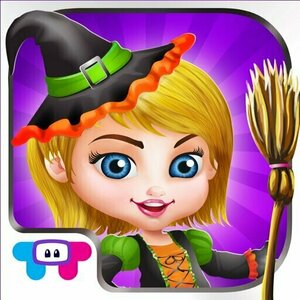
Halloween Costume Party - Spooky Salon, Spa Makeover & Dress Up
Games and Entertainment
App
~~> Be ready for Halloween when you get your full costume and makeover done! ~~> Use the spooky...

Baby Monitor Annie: Nanny Cam
Lifestyle and Health & Fitness
App
#1 Ranked Free Baby Monitor in USA, UK, CA, AU. Over 1 Million Installs, Created by Loving Parents. ...

MyColorful – Coloring Book for Adults
Entertainment and Lifestyle
App
With My Coloring (adult coloring book), it is very easy to create masterpieces, because coloring...
